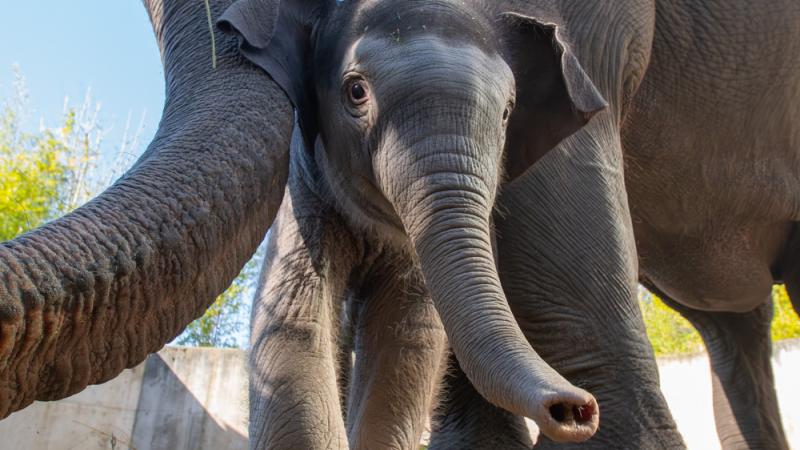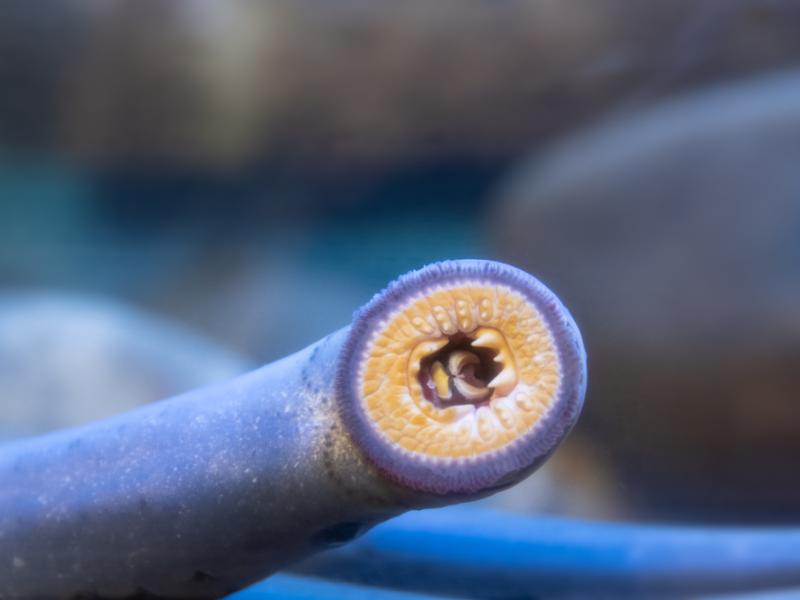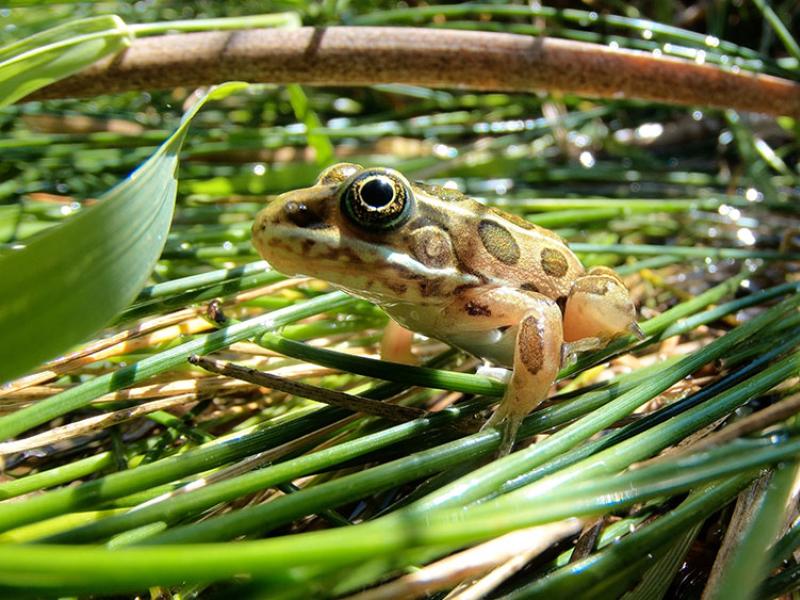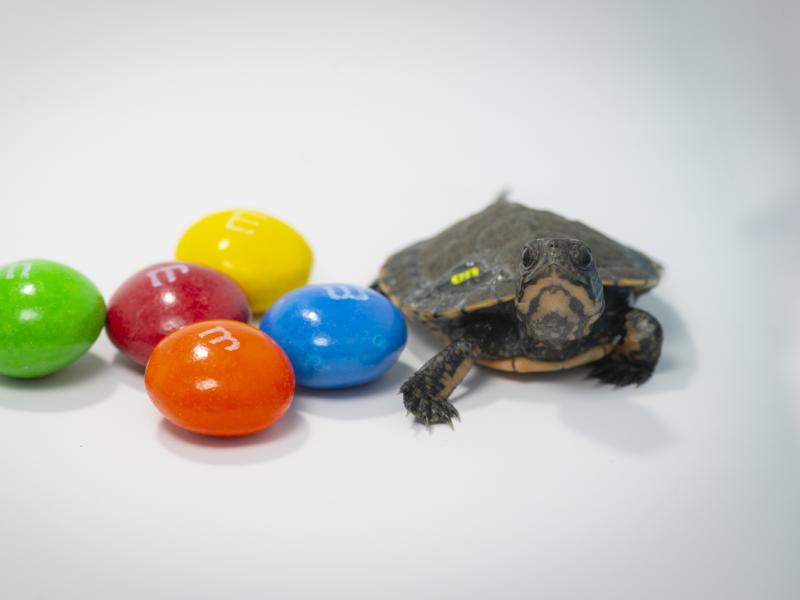Sunny with a chance of Tula: Baby elephant ventures out

The month-old calf spent some time in the sunshine this week with her mom, Rose-Tu
With warm temperatures in the forecast and a sunny sky above, Tula-Tu and her mom Rose-Tu began venturing outside on Thursday afternoon. It was the first time exploring the outdoors for Tula, who was born Feb. 1.
“We waited until it was warm and dry enough for a calf Tula’s age to play outside,” said Steve Lefave, who oversees the zoo elephant area. “Once the forecast was above 60 degrees, we opened the doors to the yard, and she trotted right out after her mom.”
Rose enjoyed some fresh bamboo, while Tula explored an outdoor area behind the scenes at Elephant Lands, making rumbling sounds and even grasping some small branches with her trunk.
“Tula’s trunk dexterity is impressive for her age,” Lefave said. “She’s definitely what I would call precocious.”
According to Lefave, it might be a while before Rose shows Tula the larger, public-facing outdoor spaces, but visitors can still greet the new arrival inside Forest Hall.
“Tula’s still a newborn, and we want to make sure we’re doing everything on her and Rose’s timeline,” said Lefave. “Once the weather is warm enough and she’s feeling comfortable, we expect her to be romping all over Elephant Lands.”
Since her birth Feb. 1, Tula-Tu has earned national attention, including two appearances on NBC’s Today show, which named her frontrunner for “cutest animal of 2025.” Experts say interest in the baby elephant could spell good news for her wild counterparts. “The more exposure people have,” said University of Michigan professor Stephanie Preston, quoted in a recent Forbes article on Rose-Tu’s calf, “the more likely they are to consider it important to conserve the spaces where the species live.”
Highly endangered in their range countries, Asian elephants are threatened by habitat loss, conflict with humans and disease. It’s estimated that just 40,000 to 50,000 of them remain in fragmented populations from India to Borneo, and their home range overlaps with some of the most populous human areas on the planet — 20% of people worldwide live in or next to Asian elephant habitat.
“Tula isn’t the only tiny elephant we’re caring for,” Lefave noted. “In Borneo, which is home to the world’s smallest and rarest elephants, our partnership with the Wildlife Rescue Unit means more wildlife rangers are working to protect rescued calves and reunite them with their families.”
The Oregon Zoo is recognized worldwide for its elephant care program, which has spanned more than 60 years. The zoo supports a broad range of efforts to help wild elephants and has established a $1 million endowment fund supporting Asian elephants, including the Association of Zoos and Aquariums’ SAFE program to advance conservation across all 13 Asian elephant range countries. Beyond direct elephant care, the zoo collaborates with local partners in Borneo to create lasting conservation solutions, from replanting forests and establishing protected corridors to fostering peaceful coexistence between elephants and communities.
More News

Zoo welcomes 'very special group' of Pacific lamprey
Twenty five Pacific lamprey arrived at the zoo from nearby Willamette Falls.June 26, 2025

A leap forward: Endangered frogs hit survival milestone
For the first time, zoo-reared northern leopard frogs survived a winter in the wild at the Columbia National Wildlife Refuge.June 12, 2025

Tiny Endangered Turtle Hatchlings Arrive At Zoo
Seventeen northwestern pond turtle hatchlings, each about the size of a walnut, are making themshellves at home at the Oregon Zoo this summer.June 4, 2025

